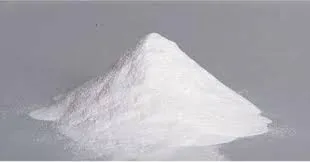
Nov . 13, 2024 21:25 Back to list
hydroxypropyl methylcellulose use
The Multifaceted Uses of Hydroxypropyl Methylcellulose
Hydroxypropyl methylcellulose (HPMC) is a versatile, non-ionic, cellulose-based polymer that has found extensive applications across a variety of industries. Its unique properties, including water solubility, film-forming abilities, and thickening capacity, render it particularly useful in food, pharmaceuticals, construction, and personal care products.
In the food sector, HPMC serves several vital roles. It is commonly used as a thickening agent, stabilizer, and emulsifier in sauces, dressings, and soups. Its ability to retain moisture makes it an essential ingredient in baked goods, where it helps maintain freshness and improve texture. Moreover, as a fat replacer, HPMC can be used in low-fat or fat-free products, contributing to a creamy mouthfeel without the additional calories.
HPMC is also utilized in gluten-free products to enhance the dough's elasticity, mimicking the properties of gluten. This is particularly beneficial for individuals with gluten sensitivities or celiac disease, allowing for a more palatable and satisfying product.
2. HPMC in Pharmaceuticals
Pharmaceutical applications of HPMC are abundant due to its biocompatibility and safety profile. It is frequently employed as a thickening agent in topical formulations, creams, and ointments, facilitating even distribution and improved adherence to the skin. Additionally, HPMC is integral to the production of controlled-release drug formulations. Its semipermeable nature allows for the gradual release of active ingredients, enhancing the therapeutic effects and reducing the frequency of dosing.
In tablet manufacturing, HPMC acts as a binder, providing structural integrity while also enabling a sustained release. Its use in this context ensures that medications are effective over an extended period, improving patient compliance.
hydroxypropyl methylcellulose use

3. HPMC in Construction and Building Materials
Hydroxypropyl methylcellulose has carved out a significant niche in the construction industry, particularly in the formulation of mortars, plasters, and tile adhesives. Its water retention properties are crucial for maintaining workability and ensuring proper adhesion of materials. In dry-mix construction products, HPMC acts as a stabilizer, reducing the risk of crack formation and enhancing the durability of finished structures.
The use of HPMC also allows for improved open time—meaning the time during which the adhesive remains workable—enabling greater efficiency during application processes. The workability provided by HPMC results not only in superior performance but also in reduced labor costs and wastage.
4. HPMC in Personal Care Products
In the realm of personal care, HPMC is a key ingredient in various cosmetic and hygienic products, including shampoos, conditioners, lotions, and creams. Its thickening properties enhance the texture and application of these products, yielding a smoother, more luxurious feel. Additionally, HPMC acts as a film-forming agent, contributing to water retention, which is beneficial for skincare formulations.
In hair care, HPMC serves to improve the emulsifying properties of shampoos and conditioners, ensuring even distribution throughout the hair. Its non-toxic nature makes it a preferred ingredient in products aimed at sensitive skin or specific skin conditions.
Conclusion
The applications of hydroxypropyl methylcellulose are vast and varied, reflecting its importance in modern manufacturing and consumer products. Its functionality as a thickening agent, binder, emulsifier, and stabilizer makes it an invaluable resource in food, pharmaceuticals, construction, and personal care industries. As research continues to unveil new properties and potential uses, HPMC is poised to maintain its significance and expand its applications even further. The continued adaptation and innovation surrounding hydroxypropyl methylcellulose reaffirm its position as a cornerstone in developing effective, high-quality products across multiple sectors.
-
Versatile Hpmc Uses in Different Industries
NewsJun.19,2025
-
Redispersible Powder's Role in Enhancing Durability of Construction Products
NewsJun.19,2025
-
Hydroxyethyl Cellulose Applications Driving Green Industrial Processes
NewsJun.19,2025
-
Exploring Different Redispersible Polymer Powder
NewsJun.19,2025
-
Choosing the Right Mortar Bonding Agent
NewsJun.19,2025
-
Applications and Significance of China Hpmc in Modern Industries
NewsJun.19,2025







